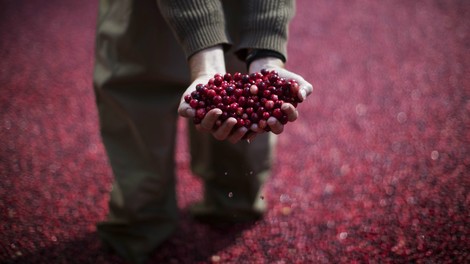Your podcast discovery platform
Curious minds select the most fascinating podcasts from around the world. Discover hand-piqd audio recommendations on your favorite topics.

piqer for: Globalization and politics Global finds
Luis BARRUETO is a journalist from Guatemala. Studied business and finance journalism at Aarhus University in Denmark and City University London.
Cranberries Caught In Trade-War Standoff: The Unlikely Story Of An American Industry
In retaliation to Donald J. Trump’s announcement to impose a series of protectionist measures, the European Union (EU) announced it is considering raising duties on, among other things, cranberries. As the US also sleepwalks into a trade war with China, Quartz's Gwynn Guilford delves into the cranberry industry's long history of innovation and growth through trade. As Trump's policies seek to revive some of America's industries — notably steel — he “risks costing his country one of its unsung innovators”, Guilford writes.
American cranberry growers are reasonably worried. Exports to China make up 7% of the total — about $45 million annually — and the EU imported nearly half of US exports in 2017. And, as the industry faces a potential reduction in foreign markets, Guilford takes a look into the history of its expansion to become one of the world's most ubiquitous products.
From Turkey Sauce To China's E-Commerce
Cranberries first became a Thanksgiving staple following US general Ulysses S. Grant's 1864 holiday feast — he declared that cranberry sauce was to be served to the troops for their Thanksgiving festival that year. Then, "it slipped into lunch sacks across America by pioneering juice boxes, and craftily came to dominate the juice aisles by commingling with apple juice. In the 1990s, a little shape-shifting allowed dried cranberries to infiltrate baked goods and trail mixes," the piece notes.
In more recent years, the industry has successfully conquered foreign markets and is currently established as a sort of luxury product amid China's burgeoning populace. As it faces headwinds due to Trump's misguided policies, Guilford reminds us the cranberry "has endured thanks to a century of relentless reinvention that’s taught first the American public, and then the world, of the many different ways to savor a bitter berry". It is a business built on invention and ingenuity that is closer to that which makes "America great".
